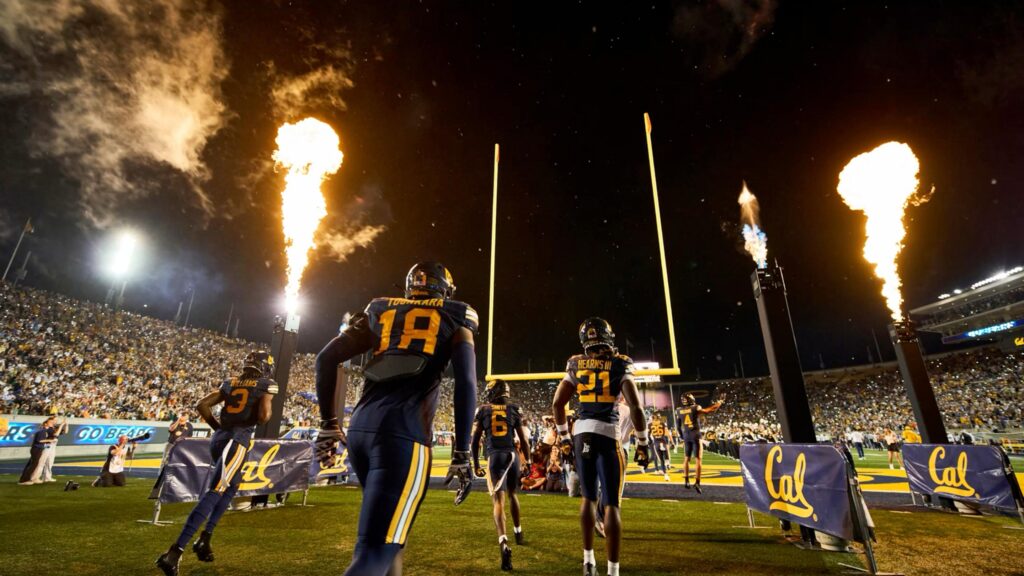College sports have long been celebrated for fostering teamwork, discipline, and perseverance among young athletes. However, a growing number of experts and insiders are raising concerns that the pressures and culture within collegiate athletics may be imparting some troubling life lessons. As universities increasingly emphasize winning and revenue, questions arise about the impact on athletes’ well-being, ethics, and long-term development. This article explores how the current state of college sports is shaping players’ experiences in ways that may challenge the values traditionally associated with amateur athletics.
College Athletics and the Pressure to Prioritize Performance Over Well-being
In today’s competitive collegiate sports environment, the relentless focus on winning often eclipses the essential human element of athlete well-being. Student-athletes face mounting expectations from coaches, fans, and institutions, driving many to push their bodies beyond healthy limits. This culture frequently prioritizes physical performance over mental and emotional health, leading to burnout, injury, and even long-term psychological effects. While scholarships and media attention spotlight athletic achievements, less emphasis is placed on the support systems necessary to sustain a well-rounded, healthy athlete experience.
Compounding the problem, many programs lack transparent policies that address mental health challenges and recovery time. Athletes are often pressured to conceal injuries and continue competing, fearing the loss of playing time or scholarships. The following table highlights common pressures college athletes face that contribute to compromised well-being:
| Pressure Factor | Impact on Athletes |
|---|---|
| Injury Concealment | Prolonged physical damage, chronic pain |
| Academic-Athletic Balance | Increased stress, reduced focus |
| Scholarship Retention | Fear, anxiety, deceptive behavior |
| Public & Media Scrutiny | Mental health decline, performance pressure |
- Overtraining leads to both physical and mental exhaustion.
- Limited access to counseling and recovery resources enhances vulnerability.
- Cultural norms undervalue rest and recovery as signs of weakness.
The Hidden Impact of Win-at-All-Costs Culture on Student-Athletes’ Mental Health
In many collegiate athletic programs, the relentless pursuit of victory often overshadows the holistic well-being of student-athletes. This hyper-competitive environment fosters a win-at-all-costs mentality that can lead to significant mental health challenges, including anxiety, depression, and burnout. Athletes are frequently pushed to ignore physical pain and emotional distress in favor of performance, which not only jeopardizes their health but also teaches them to prioritize success over self-care-a mindset that can have lasting repercussions beyond the playing field.
Experts highlight several detrimental effects stemming from this culture:
- Normalization of Stress: Persistent high-pressure conditions cause chronic stress to be seen as a standard aspect of athletic life.
- Suppression of Emotional Expression: Fear of being labeled ‘weak’ discourages athletes from seeking help or admitting vulnerability.
- Unhealthy Coping Mechanisms: Some athletes resort to harmful behaviors, such as substance misuse or disordered eating, to manage overwhelming demands.
| Impact | Common Symptoms | Long-Term Risks |
|---|---|---|
| Emotional Exhaustion | Fatigue, irritability | Chronic depression |
| Performance Anxiety | Sleep problems, panic attacks | Social withdrawal |
| Identity Conflict | Low self-esteem, confusion | Difficulty transitioning post-athletics |
Navigating Exploitation and Financial Challenges in College Sports Programs
College athletes often find themselves caught in a complex web where their physical talents generate significant revenue, yet they receive little to no monetary compensation. This imbalance has fostered an environment ripe for exploitation, where schools and athletic programs capitalize on the athletes’ dedication without adequately addressing their financial and personal well-being. The pressure to perform on the field combined with the strain of academic responsibilities creates a precarious balance that many student-athletes struggle to maintain. Additionally, the lack of transparent financial support leaves many facing unexpected expenses, overshadowing the promises of athletic scholarships and potential professional careers.
Financial challenges are not just limited to personal hardships but extend to broader systemic issues within college sports. Consider the breakdown below illustrating average revenues generated versus average athlete compensation or support:
| Revenue Source | Average Annual Earnings | Average Athlete Support |
|---|---|---|
| Football Programs | $112 million | $15,000 (scholarships, stipends) |
| Basketball Programs | $85 million | $12,000 (scholarships, stipends) |
| Other Sports Combined | $25 million | $8,000 (partial scholarships) |
Key issues contributing to exploitation and financial strain include:
- Restricted athlete compensation due to NCAA regulations despite high program revenues.
- Inadequate mental health and financial literacy resources for student-athletes.
- Disparities in funding allocations between revenue and non-revenue sports.
- Limited access to professional representation and legal counsel during contract negotiations.
Strategies for Reforming College Athletics to Support Holistic Athlete Development
To foster an environment that nurtures athletes beyond just their physical performance, institutions must prioritize comprehensive support systems. This includes expanding mental health resources, offering tailored academic counseling, and implementing career development programs that prepare athletes for life after sports. Such initiatives can help dismantle the often narrow definition of success in college athletics, encouraging personal growth and resilience. Furthermore, transparency in coaching methods and decision-making processes can create a culture of trust and respect, reducing the pressure that leads to unethical behavior and burnout.
Key strategies essential to this reform include:
- Integrating life skills workshops covering finance, communication, and time management
- Providing mandatory mental health check-ins as part of the athletic schedule
- Developing mentorship programs connecting athletes with former players
- Revising performance evaluation metrics to emphasize personal development
| Area of Focus | Current Status | Proposed Improvement |
|---|---|---|
| Mental Health | Limited access to therapists | On-staff sports psychologists |
| Academic Support | Generic tutoring sessions | Individualized academic plans |
| Career Prep | Minimal career resources | Regular job shadowing and internships |
| Performance Metrics | Wins and stats only | Inclusion of leadership and teamwork |
Wrapping Up
As the debate over college sports continues, it becomes increasingly clear that the lessons imparted to student-athletes extend far beyond the playing field. While the dedication and discipline required to compete at this level are undeniable, the troubling patterns emerging-from financial exploitation to mental health challenges-call for a critical reexamination of the system. Ensuring that college athletes receive not only physical training but also ethical guidance and comprehensive support must be a priority if these programs are to truly prepare young athletes for success both on and off the field. The Newnan Times-Herald will continue to follow this story as it unfolds, shedding light on the complexities behind the spectacle of college sports.





